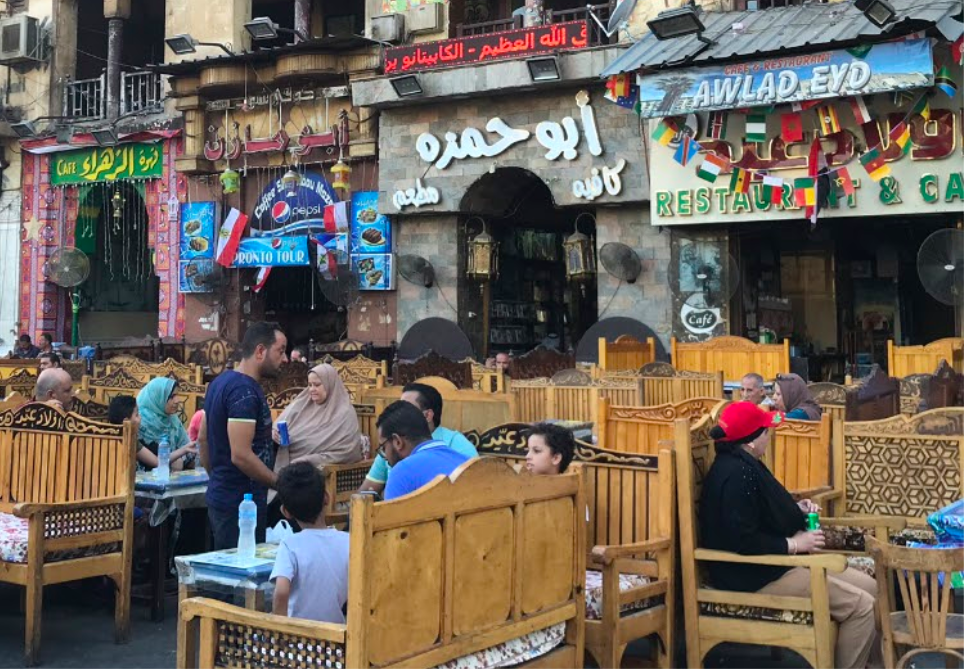
In post 9/11 America, it is a clear fact that people of Arab descent are a recognizable and often discriminated against minority. Women in headscarves face harassment and violence, men with hooked noses and large beards battle stereotypes, and brown-skinned children with foreign names are the objects of othering in the classroom.
So why is this distinct group of people, treated so differently than white people, forced to identify themselves as white on college applications, the Census, job applications, and other forms of documentation with no means of specifying or displaying their true ethnicity?
My mother is from Asia, my father from North Africa. I have been the token friend of color, I have been the butt of jokes, I have been the child whose name the teachers just can’t get right. I have been “terrorist.”
I have never been a part of the majority.
So why must I identify as though I am?
US government bureaus forcing Arabs, Middle Easterners, and North Africans to identify themselves as “white” without allowing them to state their ethnicity undermines the struggles they face, the distinct culture they own, their easily recognizable foreign features, and the discrimination they are subject to. It erases them of the experiences that are a defining part of their lives and identities.
My father suffered through the torture of being named Osama during and after September 11, 2001. He has watched TSA employees press a button as he passes through airport security, then tell him it was a “random check.”
Looking at a race and ethnicity classification form and seeing no option that represents me, I feel stripped of half of who I am. I feel robbed of the suffering I’ve endured, the culture I am a part of, the experiences and fear I’ve faced, the struggle to feel like a “real American,” the hate crimes I’ve witnessed done to my own community, and my identity.
Many people across the nation advocate for a new classification called Middle Eastern and North African, widely known as MENA. The new classification would allow people of Arab and North African descent to better represent their identities.
In institutions such as the US Census and college populations, the lack of a MENA classification hinders the representation of Middle Easterners and North Africans in demographics, policy, and legislation.
“Our communities, like all others, rely on representation through legislative redistricting, civil rights laws, and education and health statistics. A continued undercount will cause harm,” wrote Arab American Institute Maya Berry after the Census Bureau failed to include a MENA category in the 2020 census. The proposal to include one, first introduced during the Obama administration, has failed to make it out of the White House and is still a topic of much advocacy.
If instated, the proposal would require all federal agencies to ask about MENA identification either as a separate racial group or as an ethnicity. Questions intended to recognize those of MENA ethnicity would allow people to select their race, and then check a box clarifying their origin. The classification would exactly mirror the current ones that allow Hispanics and Latinos to identify their ethnicity separate from their race.
The proposal is gaining more and more support with time and not only from MENA persons.
I conducted a survey on a multiracial, multiethnic, multi gender population to determine whether more people were in support or in opposition with the institution of a MENA category. Of 227 respondents, 220 (97%) were in favor of the implementation of MENA identification.
I then invited respondents to share their thoughts with me on why they believe MENA identification should or should not be included. Here are some of the responses:
“They experience discrimination and racism and classifying them as white erases the abuse. They don’t experience white privilege especially with the xenophobia increase since 9/11.”
“It’s their choice, but same reason as choosing to identify as Latino.”
“I think there should be a classification of MENA (middle eastern or North African). This is important especially in census data bc the census helps discover benefits, disparities and trends within populations based on race and the MENA have different needs and stats than the rest of the white pop. We are also not awarded the same privileges in workforces and such even if we are white passing bc of our ethnicity and names.”
“I think classifying them as white strips away parts of their culture and identity. They should have accurate representation.”
“If we’re going to be legally classified as white then we should get the same treatment by society.”
“At least a question that’s like the one that asks if they identify as hispanic.”
Logan Kaelin, a senior at Leesville Road High School, is also half Egyptian. Like me, he feels indignant at the Census Bureau’s negligence in excluding MENA citizens from gaining the national representation and legitimacy they deserve.
“Ethnicity is defined as a social group that shares a common culture or nationality, meaning it is different from race,” said Kaelin. “To me it’s clear that Arabs and Middle Eastern people do not share a culture with Europeans and other white people.”
He believes that rather than classifying MENA as a race, Arabs should have the opportunity to check a box clarifying their ethnicity. “Hispanic people are considered white racially but Hispanic ethnically because they have a different culture and nationality than other white people. I believe the same applies to Middle Eastern, North African, and Arab people.
Asmaa Montasser is a Moroccan senior at Athens Drive High School in Raleigh. She identifies strongly with her culture, and her Arab ethnicity is easily recognizable to any stranger. Montasser feels that being forced to identify herself as white undermines the struggles she and her community faces by neglecting that she is, in fact, a minority.
“I’m North African, and whenever I fill out either government documents or, as I’m doing right now, college applications, I don’t see something that represents who I am,” said Montasser. “Checking ‘white’ makes me feel unworthy or that the struggles my family and ancestors went through isn’t ‘valid’ and I feel as though little by little it is forcing me to denounce my culture or my country…. The Gates Scholarship is only directed for minorities, which I am, but I lose that by having to identify as white. It’s like our voices aren’t heard.”
The implementation of MENA ethnic classification for Arabs is vital in allowing all Americans, specifically minorities, to have representation in politics, legislation, demographics, and other important government functions. By forcing Middle Easterners and North Africans to whitewash themselves in formal identification, federal agencies deny them the right to have their struggles acknowledged and their voices heard.
There are a number of ways to help push for the establishment of MENA ethnic classification. You can fill out your personal information here to send a prewritten letter to the federal Office of Management and Budget. You can also write letters to your congressmen or contact other politicians.

Hi! My name is Jannah and I am a senior editor and multimedia editor for The Mycenaean. I am also a math tutor, engineering intern, and a tennis player.
I am a native and resident of South Louisiana. *My culture is Cajun.* I have a French last name and most of my ancestors were from France via Nova Scotia. I have a little German lineage, too. My features, however, are predominated by my paternal grandmother’s ancestry, which was Spanish via the Canary Islands. In Louisiana, her cultural group is known as the Isleños. The original inhabitants of the Canary Islands were the Guanches from North Africa, genetically similar to the Berbers. At some point in history, the islands were colonized by Spain, but Spain, at one time was conquered by the Ottomans, i. e., Muslims from North Africa.
So, which box(es) should I strive to check?